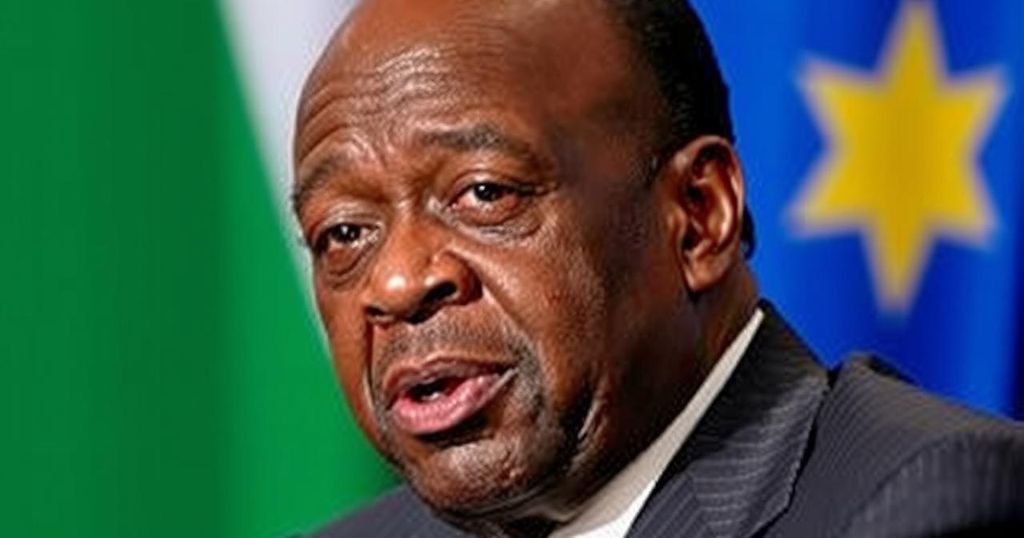Botswana’s President Mokgweetsi Masisi has conceded defeat as his party, the Botswana Democratic Party (BDP), lost its parliamentary majority for the first time since independence in 1966. The opposition coalition, led by Duma Boko, has secured two-thirds of the seats, with Masisi acknowledging his party’s significant losses and committing to a smooth transition of power as the official results are awaited.
Botswana’s President Mokgweetsi Eric Masisi has publicly acknowledged his defeat following the significant electoral loss of his party, the Botswana Democratic Party (BDP), which has held power since the nation’s independence in 1966. In the recent parliamentary elections, preliminary results revealed that the BDP had secured only two parliamentary seats, while the opposition coalition, led by Duma Boko of the Umbrella for Democratic Change (UDC), emerged victorious in a commanding two-thirds of the constituencies, claiming 40 of the 61 available seats. With the need for 31 seats to form a majority government, the UDC is poised to take control, alongside the Botswana Congress Party (BCP), which has garnered eight seats, and the Botswana Patriotic Front (BPF), supported by former President Ian Khama, with five seats. In a live televised address, President Masisi expressed humility and respect for the electoral outcome, stating that it was apparent his party had lost “massively.” He articulated his intention to facilitate a smooth transition of power, stating, “I will respectfully step aside and participate in a smooth transition process ahead of the inauguration.” Masisi reflected on his presidency, describing it as both interesting and challenging, while reassuring his supporters to unite behind the incoming government. The official electoral results are anticipated to be released later today by the Independent Electoral Commission, but the current trajectory suggests a significant shift in Botswana’s political landscape, marking the end of an era for a party that has been integral to the country’s independence narrative.
The Botswana Democratic Party (BDP), which has been in power since the country achieved independence in 1966, has historically been a significant force in African political movements. Despite regularly conducting elections and offering peaceful transitions of leadership, this electoral defeat marks a pivotal change in Botswana’s governance. The recent election saw the BDP reducing its parliamentary seats dramatically, occurring amidst a growing opposition coalition that has managed to unite various parties under a common threat to the status quo represented by the BDP. This election is set to redefine the political trajectory in Botswana, a country long regarded for its stable democracy and political maturity.
In conclusion, President Mokgweetsi Eric Masisi’s acceptance of defeat heralds a transformative period for Botswana, as the opposition coalition, particularly the UDC led by Duma Boko, prepares to assume governance after a decisive electoral victory. The results reflect a significant shift away from the longstanding dominance of the BDP, indicative of changing public sentiments and political alliances within the nation. The President’s commitment to a smooth transition signals a respect for democratic processes, which will be crucial as the country moves forward under new leadership.
Original Source: www.theeastafrican.co.ke






